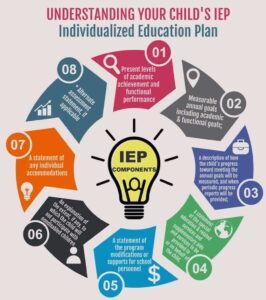
Speaking at the Annual General Meeting and Research Symposium of the Jamaica Association of Education Officers in August 2025, I proposed that Jamaica’s high stakes examination be abolished and replaced with an assessment system rooted in individual assessments using the growth-focused and milestone-sensitive evaluation system called the Individualised Learning Plans (ILPs).

The Primary Exit Profile Examination
The Primary Exit Profile (PEP) examination is rooted in the National Standards Curriculum (NSC). To be clear, I am not calling for the abolition of the NSC, I am calling for a change in how students are assessed under the NSC. Under the current modes of testing, students are assessed nationally over the course of the years at Grades 4 to 6, covering curriculum-based tests, ability test, and performance tasks. It is to be noted that at Grade 6, there are seven (yes, seven) examinations that students do inclusive of four curriculum-based tests (Social Studies, Science, Language, and Mathematics), plus performance task mathematics, performance task language, and ability tests. In addition to this battery of tests, there is the prior Grade 3 diagnostics (which covers language and mathematics), and the entry test, the Grade One Individual Learning Profile (GOILP).
I am not calling for the abolition of the NSC, I am calling for a change in how students are assessed under the NSC.

The foregoing sets outs generally how the system is currently structured, but there are changes coming for the 2025/26 School Year. For the 2025/26 year, the GOILP will be retained. Then there will be a Grade 2 Diagnostic (previously done at Grade 3); then a new Grade 3 test, followed by Grade 4 tests covering literacy, numeracy, and performance tasks in math and language. These will all be nationally administered tests. The Grade 5 test will now be administered locally, then there are the seven tests at Grade 6. These tests are in addition to school and classroom-based tests (some weekly or fortnightly, plus mid-term, end of term and end of year) plus “tons” of homework assignments. These are a lot of tests!!! It is tiring for me just thinking about all these tests. And as a retired educator quipped, “these students are tested more than they are taught!”.
These will all be nationally administered tests. The Grade 5 test will now be administered locally, then there are the seven tests at Grade 6. These tests are in addition to school and classroom-based tests (some weekly or fortnightly, plus mid-term, end of term and end of year) plus “tons” of homework assignments. These are a lot of tests!!! It is tiring for me just thinking about all these tests.
Perspectives of Parents and Practitioners
The Gleaner newspaper carried my comments and posted it on various social media platforms. Readers also forwarded the story via WhatsApp. There were several comments some of which I cite below:
- PEP is only as strong as the system that delivers it. Sadly, it is undermined by the same old teaching methods, resource gaps, and insufficient systemic support.
- It is good for critical thinking…but content should be cut down.
- This version of PEP was not the one shared with stakeholders and the nation in general
- My child did the full component. From a parent’s perspective it was punishment
- My son achieved a good grade but was placed at a school that was less than desirable
- It is worth noting that even though the primary school children are being tested more than ever, the literacy and numeracy rates are falling
- The psychological impact is real. I watch my child having panic attack the night before Grade 4 PEP
- If you ever see how the parents gash (with ‘fire’) when they post the PEP prep in the group
- PEP was designed to assess higher-order thinking (but this is purportedly being done) in an educational system which prioritises regurgitation and teaching-to-the test.

I repeat that I applaud what the NSC was designed to accomplish but the assessment tool (PEP) is flawed at several levels, and therefore including:
- The one-size-fits-all nature of the PEP examination in a context in which the quality of resources available to many students is grossly inequitable
- The fact that beyond inequity, some schools are terribly under-resourced
- The reliance on regurgitation (rote learning)
- The number of tests that are conducted with no corresponding interventions which take account of test results by probing deeply the experiences and performance of students. In other words, the tests are done, and no particularised interventions take place.
- The stressful nature of the test and the corresponding subliminal messaging that exposure to stress is a necessary part of the process
- The fact that these national mass tests are in addition to school and classroom-based tests (weekly, fortnightly, mid-term, end of term and end of year) plus ongoing “homework”.
Exploring an alternative
Let us look at the Individualised Learning Plan (ILP) approach – what it is, some countries where it is practised, the results being reported by those countries, and what makes that approach viable for Jamaica.
What is an ILP?
An individualised learning plan is a personalised document that sets out in detail, a learner’s specific learning and development goals, to be attained within a given timeframe. The ILP takes account of the strengths and development gaps of the learner as well as his or her interests. The plan is developed collaboratively among the learner, his / her parents, and the school authorities. The plan is set within the educational objectives and learning outcomes of the country or province / district within which a school and the student is located, and details the strategies, pedagogical approaches, supporting resources, and assessment tools to be provided / used and the milestones and accomplishments expected of the learner.
How are ILPs designed
The ILP seeks to ensure that learners receive the general and personalised attention that they need to succeed and is proactive (not reactive) in application. The student is the central focus of the planning process and the implementation of the plan, and the student plays an active role, as the subject rather than the object of the plan. Plans are continuously updated (at least annually) to ensure that they remain relevant to the needs of the learner.
The use of ILPs does not presume that each student has his or her own teacher or shadow. The individualisation is not with respect to the teacher. It is instructive to note that ILPs are used in large countries with millions of students. In practice, ILPs take account of the national educational objectives which are articulated at the macro level. These objectives are decentralised and adapted to the needs of regional, local, and school districts and then personalised to the needs of each student whose plan benefits from the inputs of teachers, specialists, school psychologists, parents and the student.
Countries and their uses of the ILP approach
In some countries, the ILP is used to support learners with special needs, but in others it is used for all learners. ILPs are commonly used in Asia, Australia, Canada, Finland, Germany, Indonesia, Ireland, the Netherlands, New Zealand, Saudia Arabia, Sweden, Thailand, the United Kingdom, and the United States.
It is essential to note in countries that use ILPs, they may also have high-stakes mass testing, but not for the same purpose. The ILP is used for the learner’s individual growth needs, and there is ongoing assessment of the student’s personal progress towards his or her own goals. Mass testing is used to rank a country’s education system compared to other countries, but not to assess the individual student’s progress. Participation in these tests, such as the Programme for International Student Assessment (PISA) is based on random selection. Students do not volunteer or opt-in but would have the choice to opt out if selected.

Whereas mass testing seeks to transition or promote students to the next level based on their performance in high-stakes exams, the transition of students through the education system using ILPs is based on progress made under the plans relative to the academic and career goals to which they are aligned. Thus, the students’ progress and readiness are critical determinants of the point at which the transition takes place, compared to most mass testing systems which move students to the next grade level regardless of their progress and readiness.
Thus, the students’ progress and readiness are critical determinants of the point at which the transition takes place, compared to most mass testing systems which move students to the next grade level regardless of their progress and readiness.
The issue of resources in making ILPs work
Among the most critical factor necessary to make an ILP system work is appropriate teaching and learning resources in both personnel and materials. Well-trained and adequately compensated teachers, specialists, and school psychologists are fundamental. Adequately resourced school plants are non-negotiable. High involvement of parents is a requirement, and students eager to learn and who are accountable is the bedrock.
One question that readers may be prone to ask is: “Can we afford this?”. I would answer by asking: “Are you satisfied with the results we are getting from the current system, and can we therefore afford not to afford the pursuit of transformational change?
References
Alkahtani, M.A. & Kheirallah, S.A. (2016). Background of Individual Education Plans (IEPs) Policy in Some Countries: A Review. Journal of Education and Practice.Vol.7, No. 24. https://files.eric.ed.gov/fulltext/EJ1112737.pdf
Ferguson, A. (2025, August 23). UWI professor wants PEP abolished. The Gleaner. https://jamaica-gleaner.com/article/lead-stories/20250823/uwi-professor-wants-pep-abolished
Hewitt-Stennett, T. (2018, April 6).National Standards Curriculum Promotes Inclusive Learning – Morris. Jamaica Information Service. https://jis.gov.jm/national-standards-curriculum-promotes-inclusive-learning-morris/
Jamaica Observer. (2025, May 1). PEP changes to be announced in summer, says education Minister. https://www.jamaicaobserver.com/2025/05/01/pep-changes-announced-summer-says-education-minister
The Gleaner. (2025, April 14). Changes to be made to PEP exam. https://jamaica-gleaner.com/article/news/20250414/changes-be-made-pep-exam
Canute Thompson is Professor of Educational Policy, Planning and Leadership, Pro Vice-Chancellor – Undergraduate Studies and Director of the Caribbean Centre for Educational Planning at The University of the West Indies, a social activist, and author of eight books and twenty journal articles.
Professor Thompson has earned several awards. Among them, are eight UWI Principal’s Awards – two for Best Publication (Article Category) in 2019 and in 2020 for his book, ‘Reimagining Educational Leadership in the Caribbean’; three for Most Outstanding Researcher (2020, 2021, and 2024); two in 2023 on behalf of the CCEP – for Research Activity generating the most funds and Research with the most Development Impact, and one in 2024 for Research Activity generating the most funds. In 2022 he was awarded a bronze medal in the Independent Publishers’ Book Awards, for his 2020 book, Education and Development: Policy Imperatives for Jamaica and the Caribbean.

I agree that our students are over tested, especially at grade 6. The performance task for mathematics and language arts could be merged into the curriculum based test. They could be removed totally since similar skills are tested in the performance test at grade 5.
I believe that we need to fix the issues at the secondary level so that more schools become schools of choice. When all schools are perceived as being able to deliver at the same level then the high stakes exam can be removed.